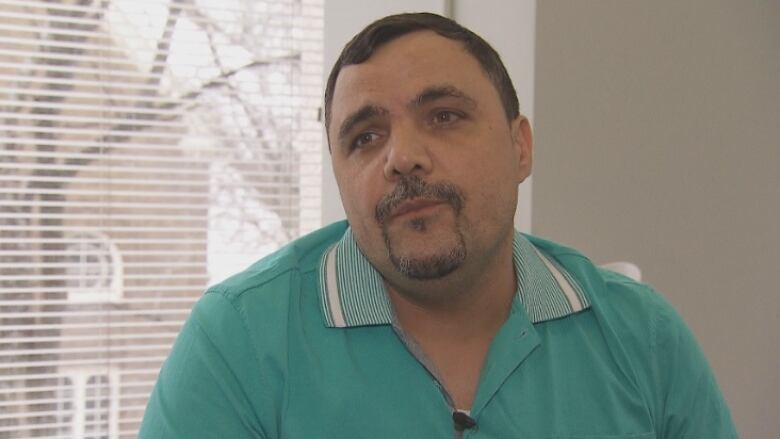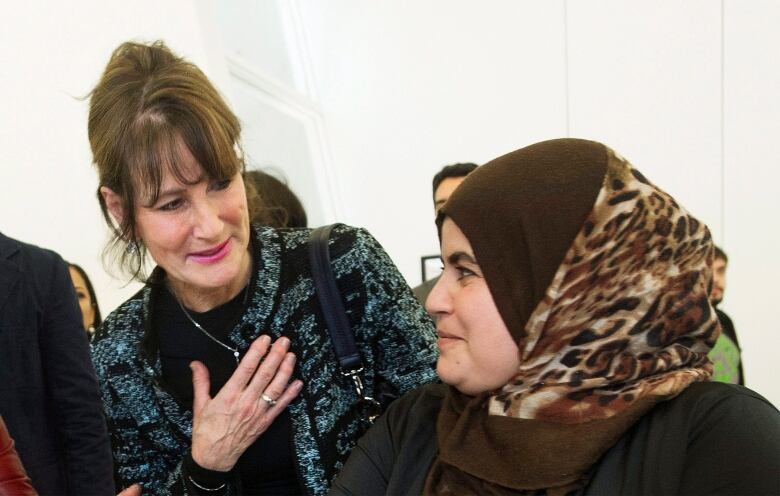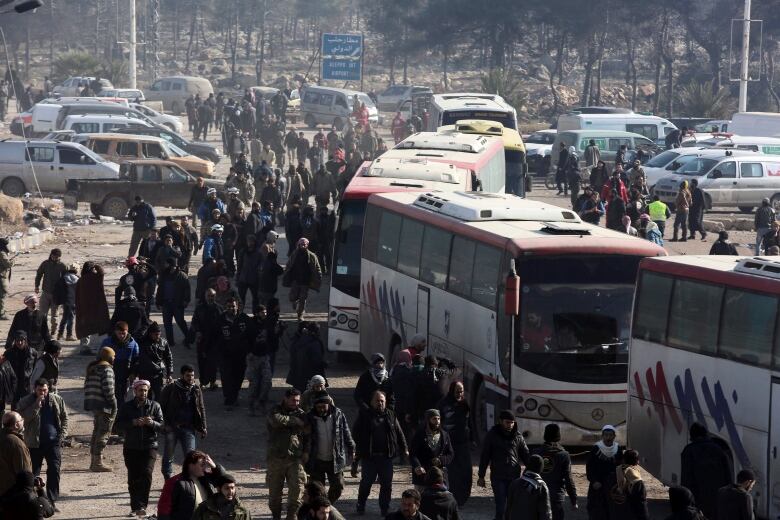Sponsors rush to submit applications to Quebec's refugee program before it shutters
Massive backlog treating applications prompted Quebec to suspend program

WhenWael Sabouni heard the applications process to bring private refugees to Quebec was closing in late January, his feelings ranged from angry to sad.
From Aleppo himself, Sabouni brought his parents and cousin to Canada through the program. But his brother and his other cousin are still in the war-torn Syrian city, and now he's rushing to get their applications in before Quebec's January-26 deadline.
- 'Stepping stones': Children's book tells Syrian refugees' journey through stone art
- Montreal doula uses experience to help Syrian refugees overseas
"I'm running," he said. "I left work to try and get all of the papers ready before it's too late."
Sabouni is one of many rushing to get their papers in, according to Paul Clarke, executive director ofActionRfugisMontreal.
Quebec's Ministry of Immigration announced the temporary suspension of the program on Monday, citing a massive backlogprocessing existing applications.
The private sponsorship program is popular, and though it can be years before refugees actually make it to Canada, simply the ability to file an applicationgivessponsors and refugees hope, said Clarke.
He said he's preparing for "difficult" conversations with would-be clients seeking to bring their loved ones to Canada.
Awaiting Ottawa's approval
Before a 2015promise to bringSyrian refugees to the province, Quebec had been accepting around 500 privately sponsored refugees a year, often from places like Afghanistan or Eritrea.
Thatnumber now sits between 4,000 to 5,000 per year.
On Monday, amissive from Immigration Minister Kathleen Weil's office said more than 10,000 applications have been accepted by the province and are awaiting approval from the federal government.

Three-quarters of them are for Syrian refugees and the government is committing to seeing those applications through.
"We will continue to respect our humanitarian commitment by welcoming refugees from all backgrounds in accordance with the Quebec immigration plan for 2017," said Weil in a statement.
On CBC's Daybreak, Clarke said he'd like to see a reorganization of the program to make it sustainable in the long term.
"We're hoping that the suspension is only for a certain length of time," said Clarke.
Last month, the federal government said it would limit the filing of new refugee applications sponsored by the private sector for 2017, as it has become increasingly difficult for the government to process files within a reasonable time frame.
As of December 31, Quebec had welcomed 7,431 Syrian refugees, just over the target of 7,300 set for 2015-2016.

Suspension makes people 'a little more desperate'
Action Rfugis Montreal wantsa reorganization of the refugee-sponsorship program to accompanytemporary suspension. Clarke said his office submits about 100 sponsorship applications per year averaging 2.2 people per application but the demand from people hoping to sponsor refugees is much higher.
For his organization alone, there's a multi-year waiting list for people wanting their help to go the sponsorship application process. And once the application is submitted, the process is expected to last another five years.
Sponsors who filed applications in 2011 are only now seeing their sponsored refugees arrive, said Clarke.
"In some ways, we operate on hope, and not being able to submit a file reduces the hope and makes people a little more desperate," he added.
With files from CBC's Daybreak, Alison Northcott and The Canadian Press












_(720p).jpg)


 OFFICIAL HD MUSIC VIDEO.jpg)
.jpg)



























































































